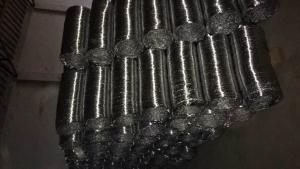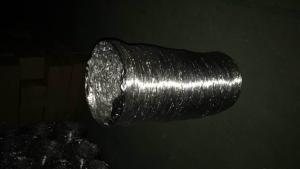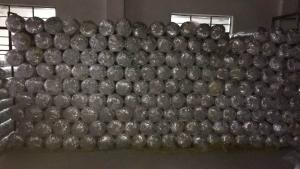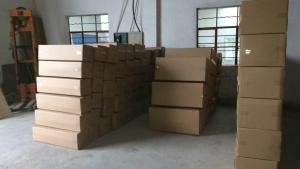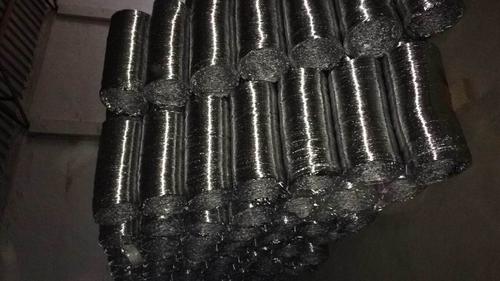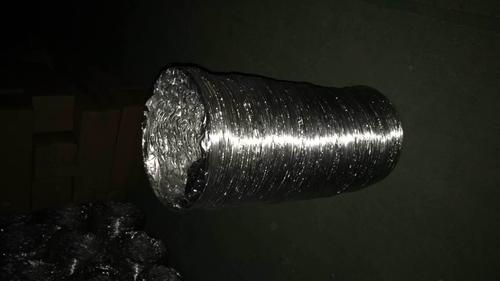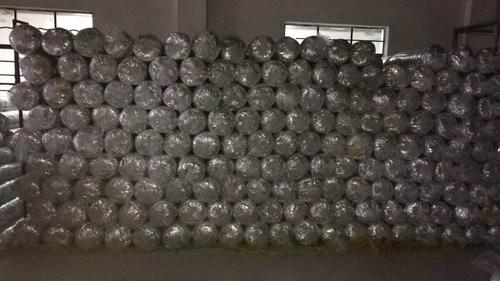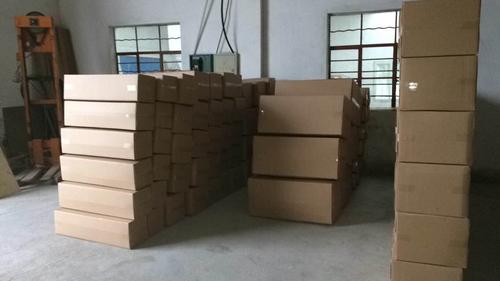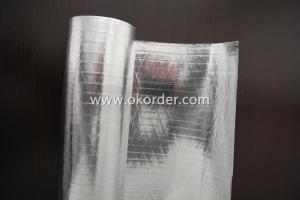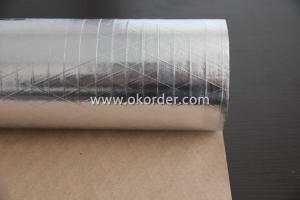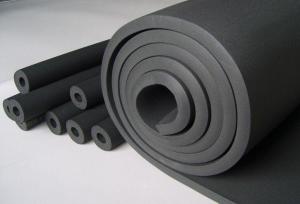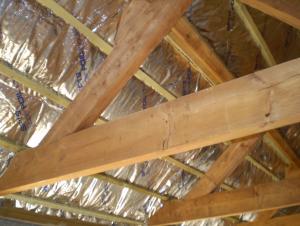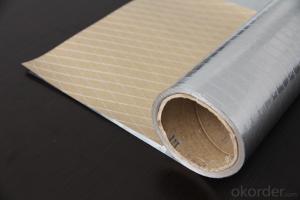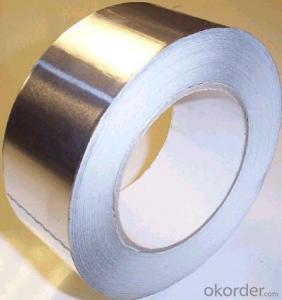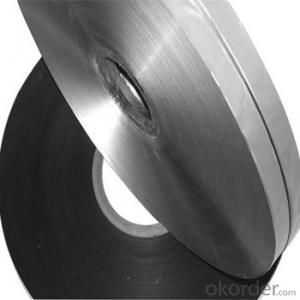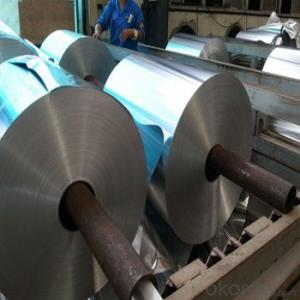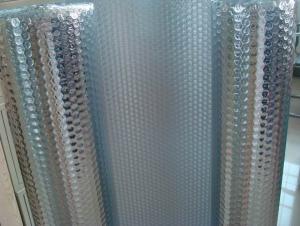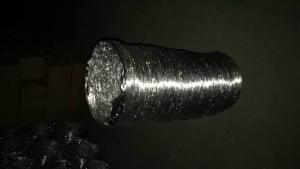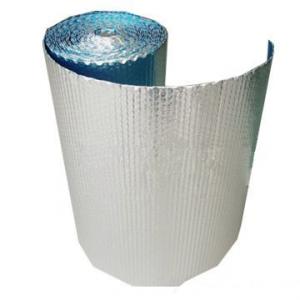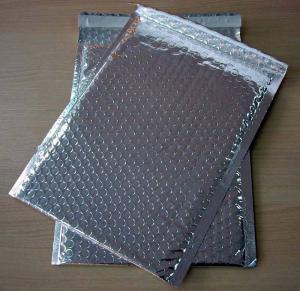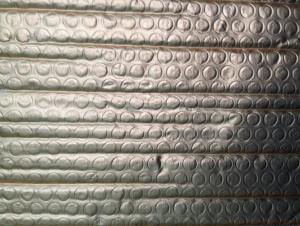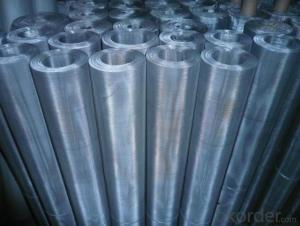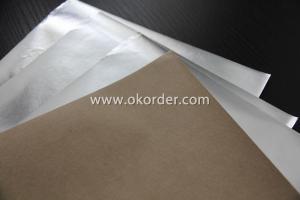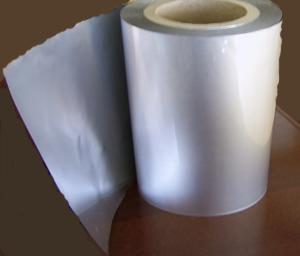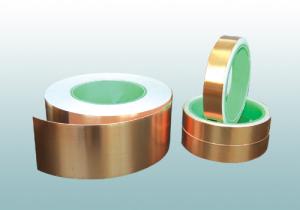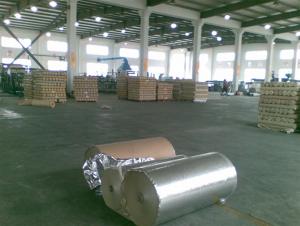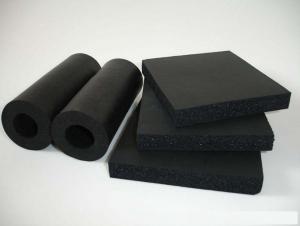Aluminum Foil Facing Aluminum Foil with Mpet and LDPE Insulation
- Loading Port:
- China Main Port
- Payment Terms:
- TT OR LC
- Min Order Qty:
- -
- Supply Capability:
- -
OKorder Service Pledge
Quality Product, Order Online Tracking, Timely Delivery
OKorder Financial Service
Credit Rating, Credit Services, Credit Purchasing
You Might Also Like
| structure | Normal laminated thickness | Width | Length | Color | ID | OD | Packin |
| AL+PET | 7umAlu+15umPet+3umGlue | 6mm-1000mm as your required | 500m-7000m | Silver blue bronze black others | 2"or3" | 250mm-600mm | polybag caron pallet
|
| 9umAlu+12umPet+3umGlue | |||||||
| AL+PET+AL | 6umAlu+15umPet+6umAlu+6umGlue | ||||||
| PET+AL+PET | 15umPet+7umAlu+15umPet | ||||||
| AL+PET+EAA | 7umAL+15umPET+25umEAA+6umglue | ||||||
| AL+PET+AL+EAA | 7umAlu+15umPET+7umAlu+25umEAA+9umglue | ||||||
| PET+PET | 15umPet+15umPet +3umGlue | ||||||
| Polyester Tape | 15um,18um |
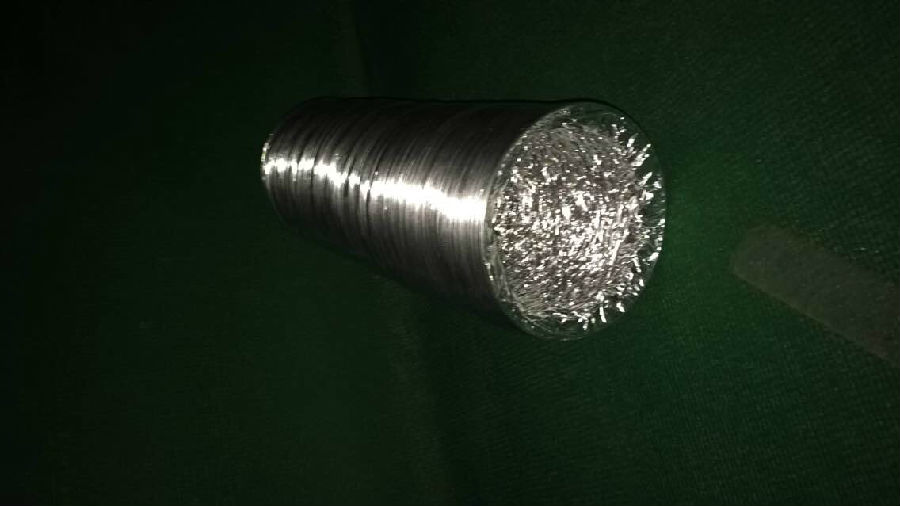
- Q: The user is asking if they can reuse their old aluminum foil facing to create new ones once it becomes worn out.
- <p>No, you cannot create new aluminum foil facings from old, worn-out ones. Aluminum foil facings are typically made from a specific type of aluminum that is bonded to a substrate. Once it wears out, the aluminum layer is compromised and cannot be reused to make new facings. Recycling old aluminum foil is the best option to reduce waste and conserve resources. You can recycle aluminum foil, which will then be processed and turned into new aluminum products.</p>
- Q: What are the recommended cleaning products for aluminum foil facing after use?
- <p>For cleaning aluminum foil facing after use, it's best to use gentle, non-abrasive cleaning products. Mild dish soap and warm water are usually sufficient for most cleaning needs. Avoid using harsh chemicals or abrasive scrubbers, as they can damage the aluminum surface. If there are stubborn stains, a mixture of baking soda and water can be used as a gentle abrasive. Always rinse thoroughly and dry the surface to prevent any residue or potential damage.</p>
- Q: This question asks for the proper method of using aluminum foil to wrap food, with emphasis on the correct side of the foil facing outward.
- <p>To wrap food correctly with aluminum foil, you should use the dull side of the foil facing outward, which is in contact with the food. The shiny side has a non-stick surface and is not recommended for direct food contact as it may contain substances that could potentially leach into the food when heated. Start by cutting a piece of foil large enough to fully cover the food. Place the food in the center, then fold the foil over, crimping the edges to seal tightly. This will help retain moisture and heat, and prevent any potential cross-contamination.</p>
- Q: Is it possible to use aluminum foil with a facing layer to wrap sandwiches?
- <p>Yes, aluminum foil facing can be used to wrap sandwiches. It provides a barrier to keep the sandwich fresh and protected. However, it's important to ensure that the facing layer is food-safe and doesn't contain any harmful substances that could leach into the food. Always check the packaging to confirm that the aluminum foil is suitable for food contact.</p>
- Q: What are the methods to avoid aluminum leaching from aluminum foil into food during cooking or storage?
- <p>To prevent aluminum from leaching into food when using aluminum foil facing, avoid direct contact between the foil and acidic or salty foods, as these can cause the aluminum to leach. Do not use aluminum foil at high temperatures, as it can degrade and release aluminum particles. Opt for aluminum-free alternatives like parchment paper or silicone baking mats for lining pans or wrapping foods. When using aluminum foil, ensure it's the heavy-duty type, which is less likely to break down and release aluminum. Always wash hands and utensils that have come into contact with aluminum foil to minimize ingestion of any residual aluminum.</p>
- Q: This question asks for methods to clean the surface of aluminum foil facing, which is a type of material used in construction.
- <p>To clean aluminum foil facing, start by removing any loose dirt or debris with a soft brush. Then, use a mild detergent mixed with warm water and a soft cloth to gently wipe the surface. Avoid using abrasive cleaners or scrubbers, as they can damage the foil. For stubborn stains, a mixture of equal parts white vinegar and water can be applied with a cloth, followed by rinsing with clean water. Always let the surface dry completely to prevent water spots or damage.</p>
- Q: This question asks for a method to clean aluminum foil after cooking to get rid of excess oil.
- <p>To remove excess oil from aluminum foil after cooking, first let the foil cool down to avoid burns. Then, you can use a paper towel or a clean cloth to gently wipe away the oil. For stubborn oil, you can wash the foil with warm soapy water. If you're reusing the foil, make sure it's thoroughly dried before storing to prevent any potential for bacterial growth. Always remember to handle aluminum foil with care as it can be sharp and may tear easily.</p>
- Q: What are some lesser-known applications of aluminum foil in the kitchen?
- <p>Aluminum foil facing has several creative uses in the kitchen beyond just wrapping food. It can be used to cover baking dishes to prevent spills and messes in the oven, line baking sheets for easy cleanup, or create a makeshift roasting bag for cooking meats. It can also be used to sharpen knives by folding it into a book shape and running the blade through the sharp edges, or to create a non-stick surface for cooking by lining molds or baking pans. Additionally, it can be used to scrub pots and pans, removing stuck-on food, or to create a barrier between food and direct heat to prevent burning. These uses showcase the versatility of aluminum foil in the kitchen.</p>
- Q: What are the unique cleaning techniques for maintaining aluminum foil facing surfaces?
- <p>Aluminum foil facing requires gentle cleaning to avoid scratching the surface. Use a soft cloth or sponge with warm water and mild dish soap to clean the surface. Avoid abrasive materials like steel wool or harsh chemicals, as they can damage the aluminum. After cleaning, dry the surface thoroughly to prevent water spots. For stubborn stains, a mixture of water and white vinegar can be used, but always test on a small, inconspicuous area first. Regular cleaning will help maintain the appearance and functionality of aluminum foil facing.</p>
- Q: This question asks for methods to store aluminum foil to prevent damage and rusting.
- <p>Aluminum foil is resistant to rusting, but it can still be damaged if not stored properly. To store aluminum foil, keep it in a cool, dry place away from direct sunlight. Use an airtight container or a resealable plastic bag to protect it from moisture and air, which can cause it to oxidize and lose its shine. Avoid stacking heavy items on top of it, as this can cause dents and tears. If you have a large amount, consider using a foil storage box with compartments to keep it organized and protected.</p>
Send your message to us
Aluminum Foil Facing Aluminum Foil with Mpet and LDPE Insulation
- Loading Port:
- China Main Port
- Payment Terms:
- TT OR LC
- Min Order Qty:
- -
- Supply Capability:
- -
OKorder Service Pledge
Quality Product, Order Online Tracking, Timely Delivery
OKorder Financial Service
Credit Rating, Credit Services, Credit Purchasing
Similar products
Hot products
Hot Searches
Related keywords
